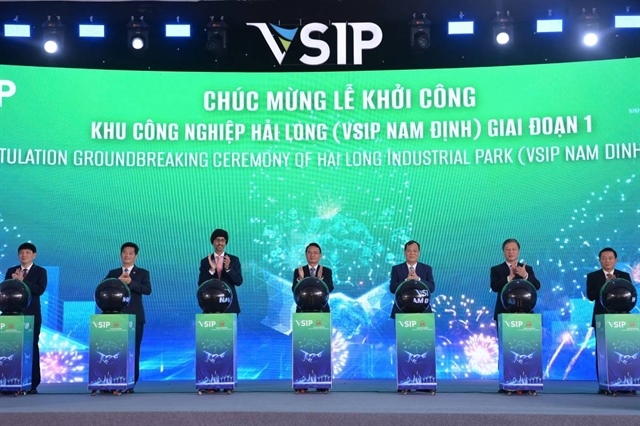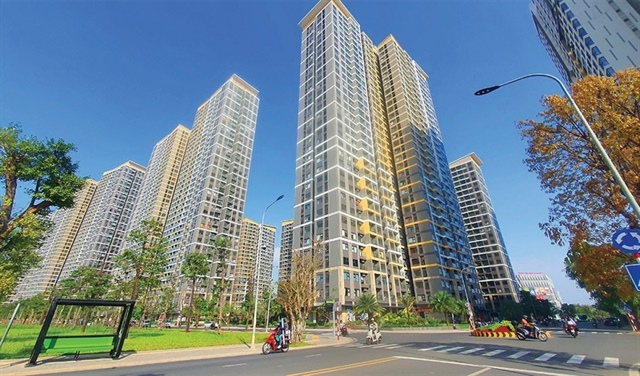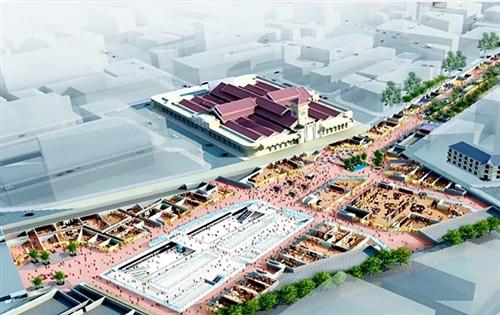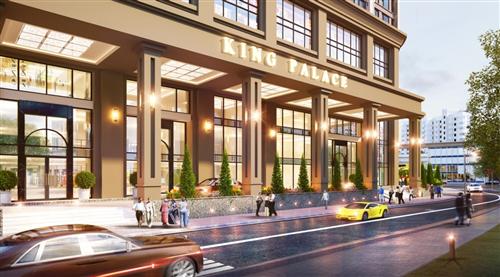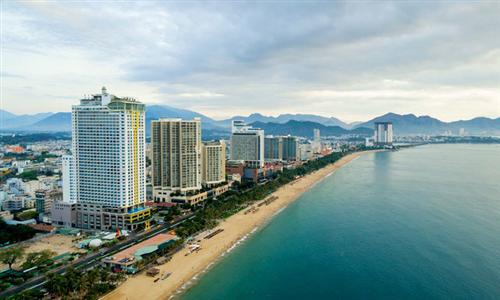JLL names five key trends of Vietnam property market 2020
JLL names five key trends of Vietnam property market 2020
The trends will contribute to helping navigate foreign investors in Vietnam.
Vietnam is expected to be one of the most favorite destinations for property investors thanks to its export-driven economy and stronger journey of international integration, professional services firm JLL has said in a recent report.

Vietnam's property market remains attractive to foreign investors in the next few years
|
Before naming the key trends of Vietnam’s property market in 2020 and in the next five years, JLL lists a number of factors that make Vietnam a promising investment destination.
Securing a large number of FTAs has set Vietnam up for a partnership with 60 countries worldwide and support Vietnam on its path to become the new global manufacturing hub, the real estate and investment management service provider said.
In addition, the Southeast Asian country will enter the golden age while its employment in manufacturing and services has increased, JLL said, noting that the Millennial generation will be the main driver of the economy in the next few years.
In the fast-changing retail sector, success has never been more dependent on the supply chain. Omni-channel is adding new layers of complexity to retail logistics: it’s no longer just getting products onto shelves, but making them available anytime and anywhere.
Accordingly, the five trends are as follows.
Industrial sector will continue to lead the market
Industrial is still the hottest sector in the market with demand growing strong as companies are still looking to relocate from China amidst political uncertainty. Even before the trade war, significant interest from foreign investors had led to land value and rental rate increasing.
Manufacturing is the sector with the most significant investment in the past 10 years, and JLL predict that it will continue to dominate the market in the next few years. In the coming time, JLL expects to see a growth in medium to long-term investors in the industrial sectors, backed by government support, free trade agreements and movement from China.
Logistics is expected to be the future of the industrial market. In recent years, increasing demand from both traditional retails and continuous growth from e-commerce sectors has put great pressure on existing supply chains, facilities and warehouses. JLL predicts that the growth of retail will contribute to investment activities for the current shortfalls of the industry.

Country Head of JLL Vietnam Stephen Wyatt
|
Offices go bigger and more connected
Office space remains a hot commodity as rents soar past the recent peak to reach a decade high. Rental rates in Grade A&B increase was supported by strong demand and higher rental rates in newer office developments. Tenants are struggling to find bigger space as in the current market, only one Grade A building and ten Grade B buildings can provide a contiguous space larger than 1,000 square meter (sq.m).
The demand for large office space will accelerate in the next few years as co-working operators grow in numbers and companies look to upgrade their office to retain talents and expand business. Larger and more flexible space means better chance of collaboration plus energy and space utilization, JLL said in the report.
Overall, macroeconomics like urbanization, growth in smart phone and Internet usage and the portion of aging population will fuel demand for alternative investment choices. Apart from the aforementioned trends, alternative real estate such as senior and student housing, data center and cloud kitchen will be popular to investors in the next few years.
The future of retail
As a new trend in the market, both retailers and mall developers are re-inventing themselves with focus on food and beverage (F&B) and experiential retailers, providing better customer services and applying technology, consumer analytics to enhance their popularity and increase foot traffic.
With increasingly shopping online habit, buying decisions often rest on how quickly and efficiently retailers can get goods out of the warehouse and into their hands. Yet it comes at a financial cost; pressure from e-commerce competitors only adds to the squeeze on retailer margins.
As Omni-channel retail evolves and consumer expectations around delivery increase, supply chain and logistics management will be crucial differentiators for retailers, according to the report.
Limited new supply continues as approval process prolongs
According to JLL, about 30,000-35,000 apartments are expected to be launched in Ho Chi Minh City and 40,000-45,000 units in Hanoi in 2020. It should be noted that the number is subject to a great deal of uncertainty given the government’s tight control in granting land use rights and construction licenses.
Strong demand is set to carry on and will boost the price further across all sectors. However, the demand in high-end segment, especially from investors, is likely to slow down in long term as their already-high price level and low rental yield make it a less attractive investment.
Sustainability and more – enabled by technology
The green movement got a tremendous boost when ‘fine dust’ and ‘virus’ become the buzzwords. As people rush to buy mask, landlords race to upgrade their buildings to protect workers and enhance profits as investments in indoor air quality and hygiene help to differentiate office buildings from competitors.
Stephen Wyatt, country head of JLL Vietnam, comments: “But sustainability is not just a trend, it has to be the future of work. The next generation of buildings is set to become more ‘green’, with sustainable technologies to save on operating costs and innovative design to attract more occupiers and tenants.”


